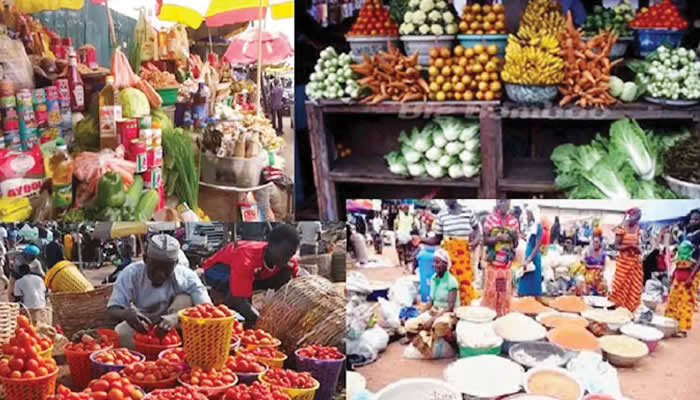In the most populated country in Africa, the cost of staple commodities has been rising sharply lately, depleting people’s monthly cash.
This occurs at a time when the Federal Government and Organised Labour are still delaying discussing the best minimum wage in a challenged economy like Nigeria, where food prices are still severely pressuring Nigerian households.
It is reasonable to assume that there would be significant food inflation to deal with, regardless of the minimum wage that is determined.
Higher inflation rates began to affect Nigeria’s economy in 2023 as a result of President Bola Ahmed Tinubu’s removal of fuel subsidies and liberalisation of foreign exchange. This had significant effects on energy prices, which raised the price of transportation and all other commodities.
While organised labour has rejected the offer and insisted on N250,000, the Tripartite Committee, which was established by the Federal Government to support negotiations on the National Minimum Wage with the Nigerian Labour Congress (NLC) and Trade Union Congress (TUC), has proposed N62,000 as the monthly minimum wage for civil servants.
It is expected that the high rate of food inflation in Nigeria today will prevent the people from being happy with the agreed upon sum, regardless of what the Federal Government and Organised Labour may decide upon.
According to the National Bureau of Statistics (NBS), food inflation in Nigeria increased to 40.53 percent in April, from 24.61 percent in the same month the previous year. Nigeria’s inflation rate surged to 33.69 percent in April.
A Sunday market study done by The News Chronicles reveals that the price of a paint bucket of garri is N4,000; the price of a bucket of beans varies between N8,500 and N12,000 according on the variety, and the price of a paint bucket of long grain parboiled rice is more than N8,750.
Comparably, a bag of beans may cost anywhere from N100,000 to N140,000; a bag of garri with roughly 20 colours can cost N88,650; a bag containing 50 kg of rice can cost as much as N60,000; a basket of tomatoes can cost as much as N120,000; and a crate egg can currently be purchased for between N4,200 and N4,500.
A trader claimed that in March, she paid N2,500 for a derica of original honey beans that had previously sold for N1,100, an increase of more than 127%.
She claims that the price of a paint bucket full of honey beans has increased by 60% from N7,500 to between N10,000 and N12,000 today.
TNC Sunday also discovered that, as opposed to N3,200 and N3,500 sold in May, a crate of eggs now sells for between N3,800 and N4,000 at the farm gate and for more than N4,500 in retail stores and marketplaces.
According to Mojeed Iyiola, chairman of the Lagos State Poultry Association of Nigeria (PAN), farmers are claiming that they are losing money on their egg sales since their logistical costs are no longer covering their costs.
A kilogramme of maize can now cost up to N850, compared to its starting price of N400 to N500, and she also attributed the increase in egg prices to the high cost of feed.
Additionally, there aren’t as many eggs available because the majority of farms have sold their older layers, and buying new stock is highly expensive—day-old chicks are getting increasingly pricey.
In addition, the exorbitant cost of feed has forced many local farmers to close their doors.
Nigeria was previously included in the list of 18 countries by the UN in a recent report that detailed their acute food insecurity, which is expected to grow in terms of both severity and magnitude.
“Since the October 2023 release of the Hunger Hotspots report, Burkina Faso, Ethiopia, Malawi, Somalia, Zimbabwe, and the Central African Republic have joined the list of hunger hotspots, where acute food insecurity is likely to deteriorate further during the outlook period,” the report states.
The report placed significant attention on the concerning exacerbation of acute food insecurity caused by simultaneous and overlapping shocks.



